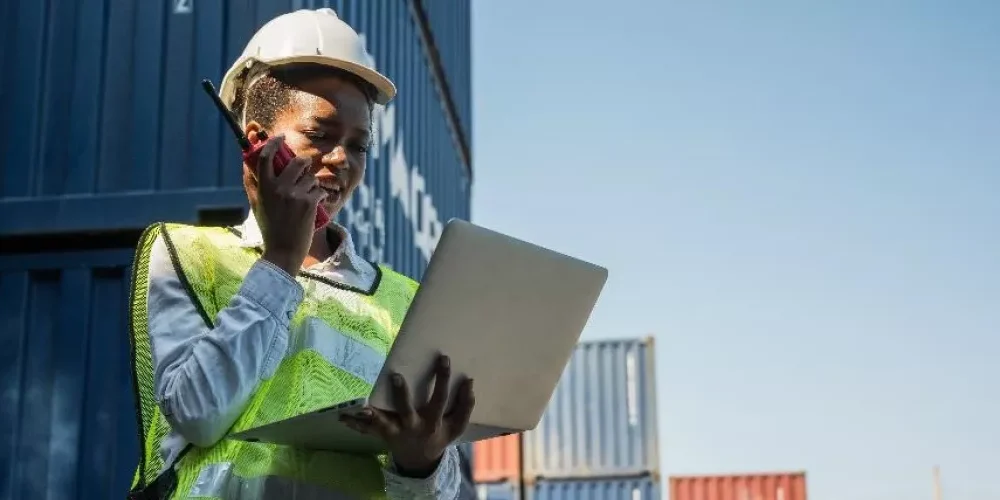Photo Credit: Shutterstock
Authors: Raian Divanbeigi and Federica Saliola
Too many people remain in low productivity, low earning, insecure, or self-employed jobs around the globe. Even before the onset of the COVID-19 crisis, the “jobs challenge” in developing countries was formidable:
- More than 250 million youth – mostly women – were neither in training, working nor seeking work (NEETs).
- In 2019, informality stood at 70 percent of total jobs across developing countries.
- Gender differences in jobs outcomes – including pay gaps and occupational and sectoral segregation – also remain large. The care burden (for children and the elderly) continues to fall disproportionately on women, limiting their labor market involvement.
Since the COVID-19 pandemic hit, labor market prospects worsened rapidly, with 108 million workers falling into extreme or moderate poverty, erasing over 10 years of per capita income gains in more than a quarter of developing countries.
Need for more projects with a focus on employment outcomes
Challenges in identifying and measuring the “jobs effects” –the net jobs created and the improvements in earnings and working conditions generated – of operational policies and investment projects have severely undermined efforts to improve labor market outcomes in developing countries.
At the World Bank Group (WBG) and across development partners, sectoral interventions rarely maximize the benefits associated with generating more and better jobs, being primarily designed to address other market failures and paying insufficient attention to “jobs implications”. The few projects that set targets for employment outcomes typically disregard indirect jobs – that is the larger, economy-wide transformations that define the jobs agenda.
Increasing jobs components in WBG operations
To support the integration of jobs into development lending, the Jobs Umbrella Multi-Donor Trust Fund (Jobs MDTF) launched in 2019 the Supporting Effective Jobs Lending at Scale (SEJLS) program. SEJLS builds on large scale WBG lending operations improving the consistency of jobs-relevant components and estimation of jobs outcomes.
This includes clarifying the conceptual framework and “theory of change” and ensuring that the economic analysis incorporates jobs-related externalities and other market failures that can hurt jobs outcomes.
Currently SEJLS informs 16 lending operations, with a portfolio that reflects the cross-cutting nature of jobs and their multi-sectoral aspects. To build comprehensive operational solutions SEJLS supports different lending instruments: Investment Project Financing (IPF), Program for Results (PforR) and Development Policy Lending (DPL).
Strengthening the link between private sector development and jobs
SEJLS is supporting investments to strengthen the link between private sector development and jobs. In Madagascar, it is working to improve the impact on and better measure job creation and jobs quality of the Integrated Growth Poles and Corridor series of projects, which cumulatively mobilize over $320 million in support of the private sector. SEJLS is also supporting IFC’s Women’s Employment Program – providing IFC clients with the tools and resources they need to strengthen gender inclusion within their operations. SEJLS is gathering empirical evidence around the impacts of gender-sensitive policies among firms in developing countries.
A focus in gender and green jobs
In line with the focus on closing the gender gap in jobs outcomes, SEJLS supports the first World Bank DPL loan solely focused on gender. This DPL aims to demonstrate that a strong gender-focused reform program can achieve visible impact. SEJLS is contributing to draw best practices on gender-focused institutional reforms and prepare toolkits that will support replication to other countries.
SEJLS also supports green jobs investments that address environmental and employment challenges at once. In Cambodia the program supports the protection of the country’s natural resources by promoting opportunities in ecotourism and conservative agriculture. In Bangladesh SEJLS contributes to reducing pollution discharges and improving workers’ health and safety by identifying viable resource-efficient alternative technologies.
Knowledge exchange and innovations
SEJLS has inspired a new workstream designed to address the knowledge gaps that continue to undermine the potential of development interventions to improve labor market outcomes in developing countries. Particularly, two recently launched initiatives supported by the Jobs MDTF are relevant. The Jobs and Economic Transformation (JET) pilots, which aim to estimate indirect jobs impacts in 20 International Development Association (IDA) countries, and the Jobs After Covid innovation challenge, which supports diagnoses and solutions to jobs challenges through country-based innovation challenge competitions.
It’s time to prioritize the jobs agenda in developing countries to make sure that better jobs are available to more people. Over the next five years, the Jobs MDTF will scale up the SEJLS program leveraging its validated lending approaches towards new investments. It will also continue expanding to new sectoral operations with high potential to improve jobs outcomes.
This blog was first published on Jobs and Development. It is the introductory blog in a new series sharing insights from activities funded by SEJLS to support WBG operations in maximizing their impact on jobs. The next blogs will present lessons from specific projects supported by SEJLS across several sectors of intervention.




